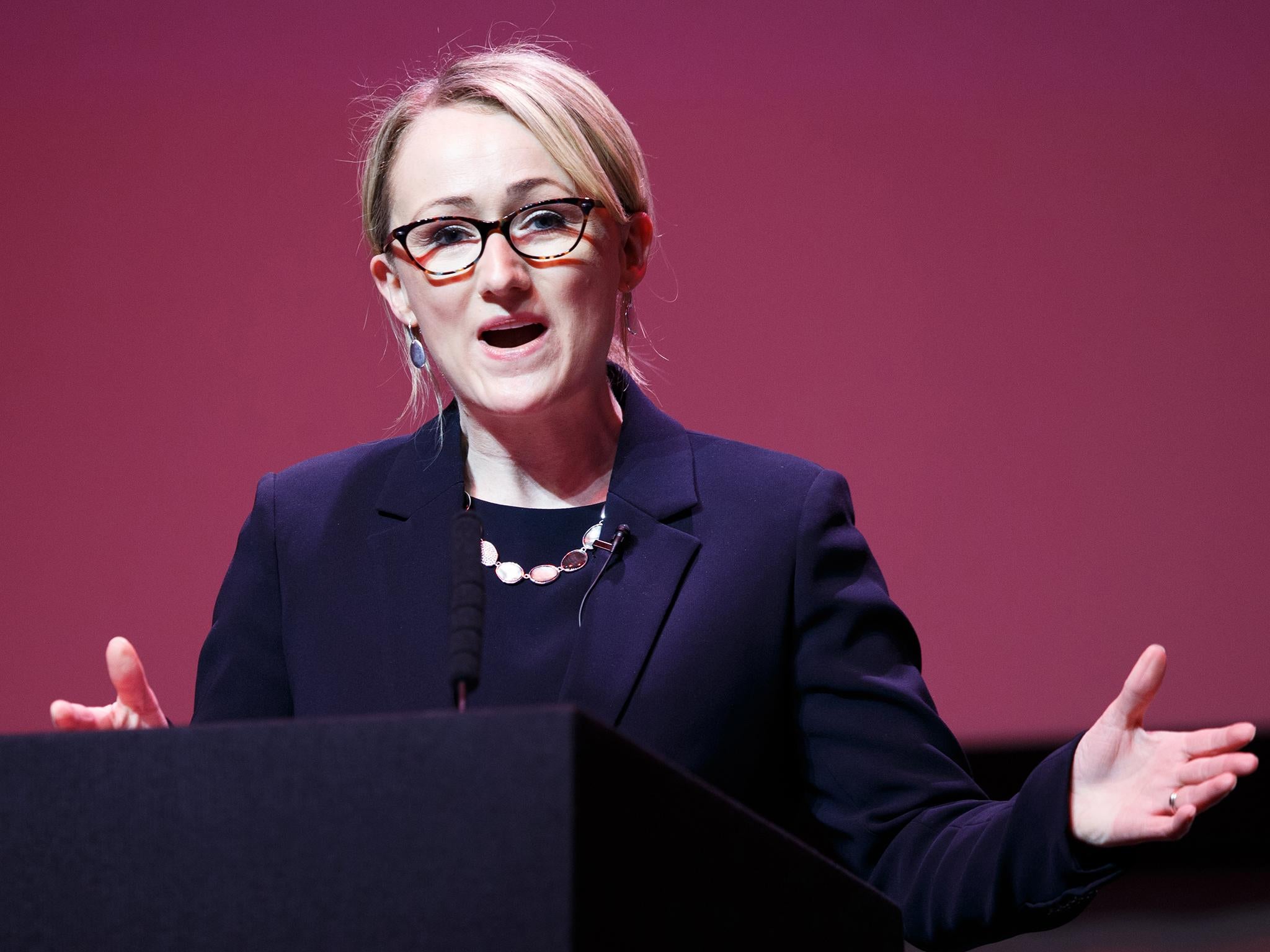Rebecca Long-Bailey says Labour ‘couldn’t refuse’ Scotland a second independence referendum
Leadership rival Starmer warns of SNP ‘trap’ over constitutional question

Your support helps us to tell the story
From reproductive rights to climate change to Big Tech, The Independent is on the ground when the story is developing. Whether it's investigating the financials of Elon Musk's pro-Trump PAC or producing our latest documentary, 'The A Word', which shines a light on the American women fighting for reproductive rights, we know how important it is to parse out the facts from the messaging.
At such a critical moment in US history, we need reporters on the ground. Your donation allows us to keep sending journalists to speak to both sides of the story.
The Independent is trusted by Americans across the entire political spectrum. And unlike many other quality news outlets, we choose not to lock Americans out of our reporting and analysis with paywalls. We believe quality journalism should be available to everyone, paid for by those who can afford it.
Your support makes all the difference.Labour leadership contender Rebecca Long-Bailey said she could back a second vote on independence – but insisted her party must not “fall into the trap” again of working with the Tories to try to keep Scotland in the UK.
The shadow business secretary spoke out as the Labour leadership hustings came to Glasgow, where she was the only one of the three remaining candidates to explicitly state she could support a fresh ballot on independence.
Ms Long-Bailey and her fellow Leadership hopefuls, shadow Brexit secretary Sir Keir Starmer and Lisa Nandy, all stressed the importance of Labour winning back support in Scotland as a route back to power across the UK.
Ms Nandy, the former shadow climate change secretary, said: “There is no route to government that doesn’t run through Scotland, but the challenge of this is absolutely enormous.”
She added: “We have to start winning in every region and nation of the UK, because we have to show we are a national party of government.”
Similarly Sir Keir said: “We can’t win without Scotland so we have to rebuild in Scotland.”
Ms Long-Bailey also echoed that, telling activists at the event: “We won’t win a general election without Scotland.”
With the hustings taking place in Scotland, issues over independence and the constitution dominated the early questions to the three candidates.
Asked directly if the Scottish Parliament should have the power to stage a legally binding vote on independence Ms Long-Bailey said: “I’m proud to be from the United Kingdom but as a democrat I have to say that if the Scottish parliament makes the request for a referendum I don’t believe that as a democratic party we could refuse that.”
Her comments came after MSPs at Holyrood voted by 64 to 54 last month in favour of a second independence referendum taking place.
If there is a second vote on Scottish independence she said Labour could make a “positive campaign” for the union.
But she was clear: “We can’t fall into the trap we did last time where we joined forces with the Conservative Party on Better Together.”
However, Sir Keir said that by backing a second independence vote, Labour could be falling into a “trap” set by the SNP.
He said the issue of Holyrood having the power to stage a fresh ballot on the issue was “an interesting question” but he added: “We shouldn’t get sucked straight into that.
“The SNP is constantly using the constitutional issue to mask the real issues, and if we get into that we are falling into their trap.
“Let’s have a wide discussion about where we go next, but let’s be bold about it.”
He argued that Labour should support “radical federalism as the way forward” for the UK.
Meanwhile, Ms Nandy said she believed in a “much more radical power settlement than federalism with power pushed out to local authorities”.
She told Labour members: “I believe in the United Kingdom and I think we have to be absolutely clear about that and we have to stand up for Scotland remaining in the United Kingdom.
“We can hand power to people and give people agency and control over their own lives again by handing more powers to our councils.”
Press Association
Join our commenting forum
Join thought-provoking conversations, follow other Independent readers and see their replies
Comments